Best UPS (Uninterruptible Power Supply) of 2024
Keep the power on
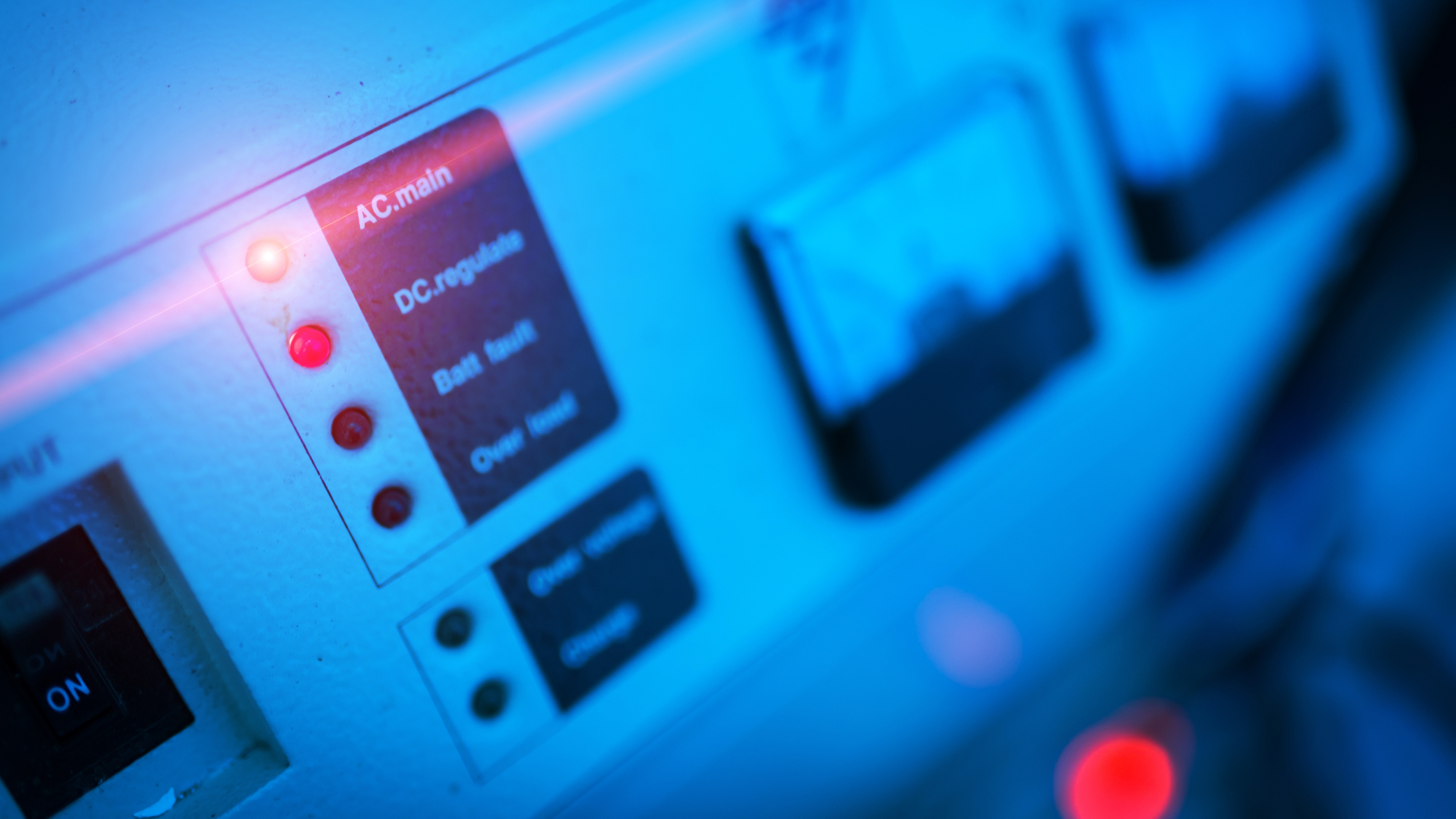
The best UPS (uninterruptible power supply) devices on this page are important purchases for any business - or home user - who needs electronic devices such as PCs and servers that have constant power connections 24 hours a day, seven days a week.
If there's a power cut, even a very brief one, then the results can be catastrophic, as servers could become unreachable, and data could even be corrupted if a computer shuts down suddenly.
That's where the best UPS come in, as if there's a power cut, they will seamlessly switch to battery power, and your devices will remain on and running until the main power is restored, or you can safely shut down the device.
These days many of us are working from home, so buying the best UPS your budget can stretch to is even more important. You may find that you're plugging in a lot more power-hungry devices into your home power supply, and this could lead to power cuts or power surges. Your home likely won't have the power backup solutions that your office does, so buying a UPS for your home could be a very wise investment.
The UPS devices we include in this guide cover a wide range of use cases, from small UPS devices for homes that can keep a router and PC running, to large and powerful UPS devices for enterprise uses. Because of this, we have listed these best UPS devices in no particular order.
We've compared these UPS devices across many factors, like their size, power supply, runtime, and battery recharging time. We looked at what types of environments they'd be best suited for and their input voltage and outlets, among other things.
We've also reviewed the best business computers, the best alternatives to QuickBooks, and the best small business servers.
The best UPS of 2025 in full:
Why you can trust TechRadar
Best UPS overall
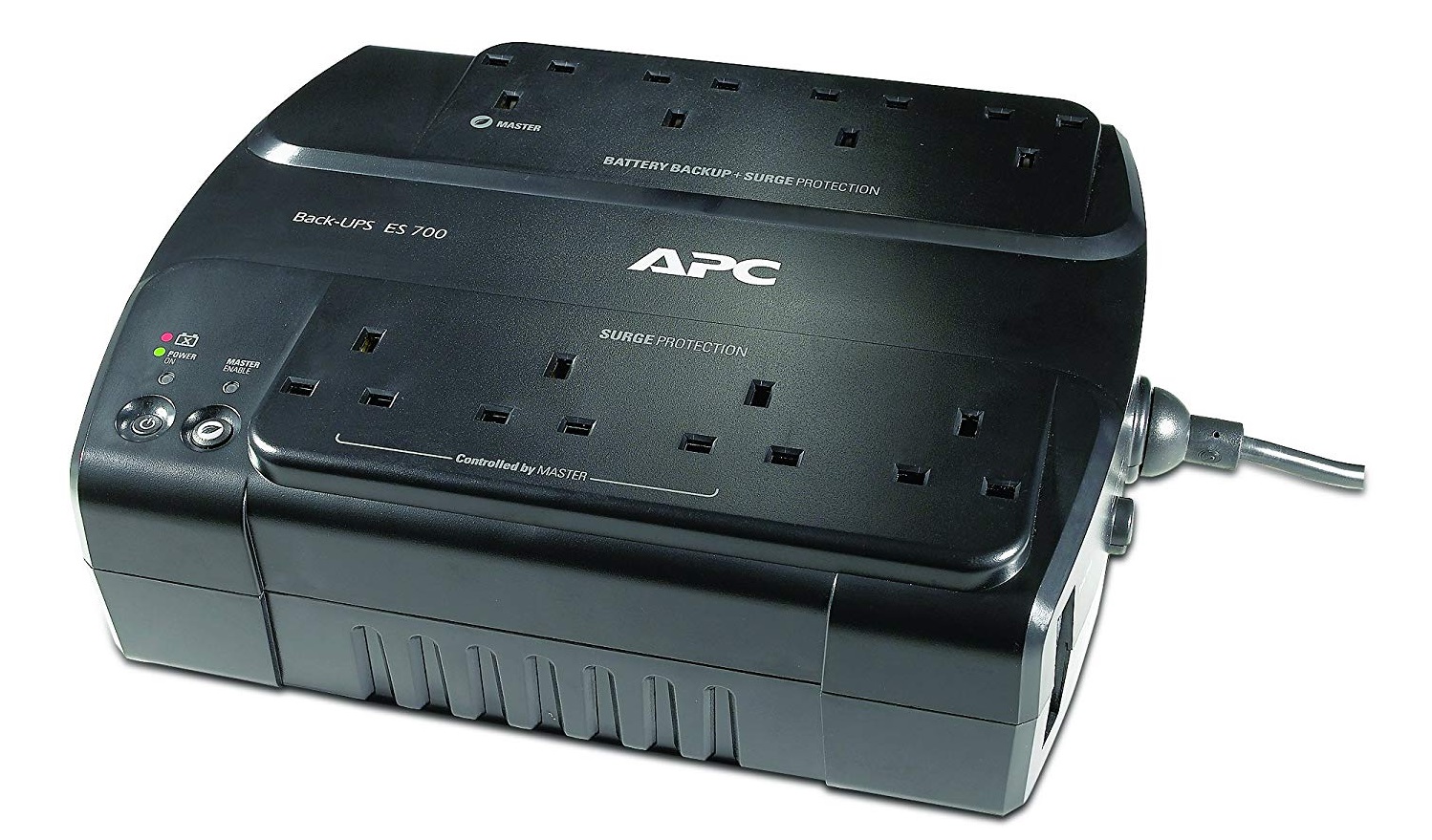
Specifications
Reasons to buy
Reasons to avoid
If you are after a cheaper, and more simple, UPS device, then the APC Back-UPS ES - BE700G is a great choice. We would not recommend it for large businesses with lots of mission-critical computers and servers, but it offers plenty of power for homes and small businesses to keep their devices going when the power fails.
This UPS from APC has eight surge-protected power sockets, four of which are covered by the battery backup. All of the eight sockets can take standard three-pin plugs, making it more convenient than the kettle leads found on some UPS systems. You will have enough UPS sockets for your Mac, monitor, and essential peripherals like an external hard drive or router.
However, if you are looking for something more feature-rich, you may want to consider a different UPS.
Best UPS for small and medium sized businesses
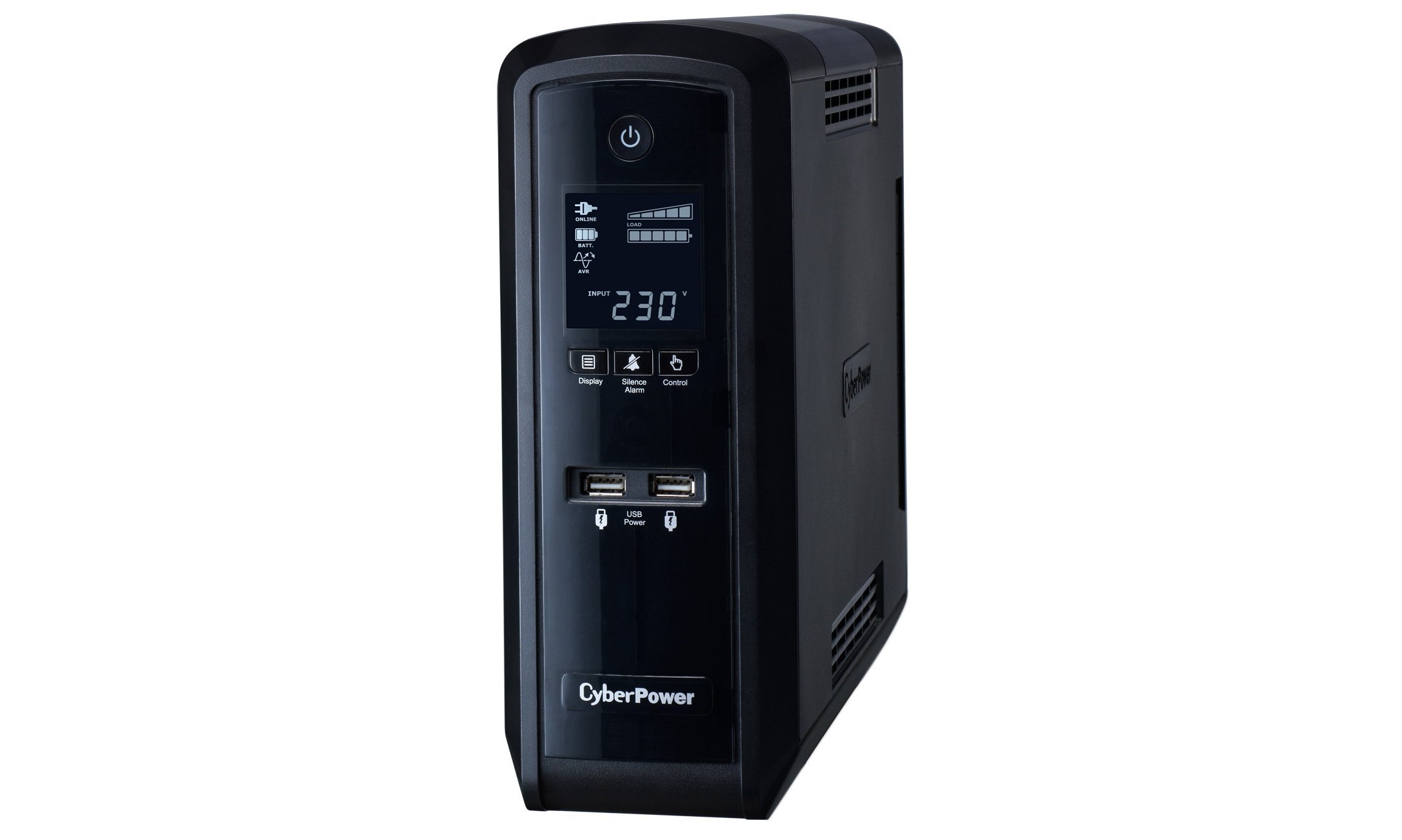
2. CyberPower CP1500EPFCLCD
Specifications
Reasons to buy
Reasons to avoid
The CyberPower CP1500EPFCLCD is an excellent UPS for home and small business use. It comes with a decent amount of ports, as well as USB, for plugging in your devices. RJ11/RJ45 ports keep your phone, fax and modem lines protected from power surges, and it comes with a number of energy-saving features to prevent it from wasting energy when in use.
Ideal for keeping mid and high-end computer systems safe, the UPS comes with Automatic Voltage Regulation (AVR) to ensure safe voltage levels for all devices that are connected. It has featured data line protection that protects communication and network equipment from power surges and spikes.
It also comes with a clear multifunction LCD display that notifies you with alerts in case of power problems, lets you check the battery condition, configure advanced settings, and perform self-tests.
Best flexible UPS
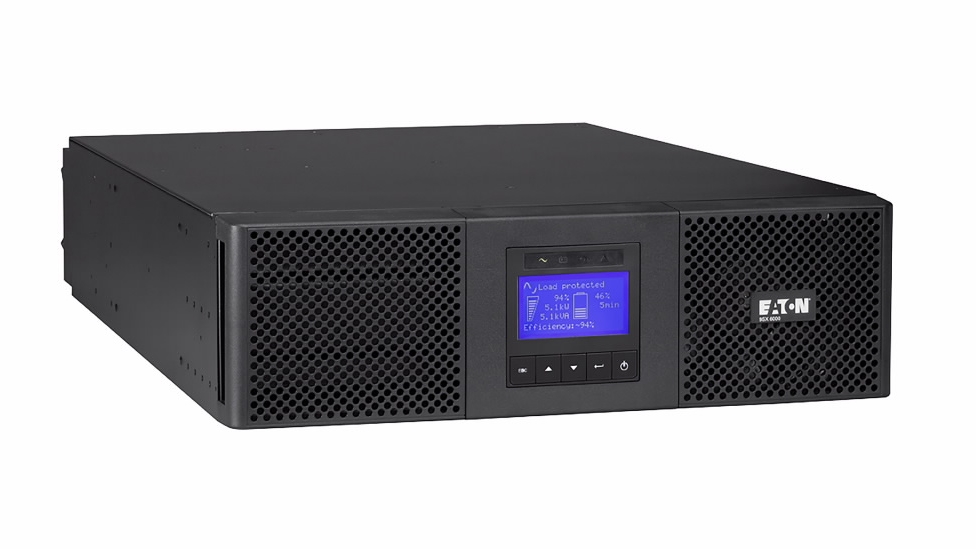
3. Eaton 9SX 5000i RT3U
Specifications
Reasons to buy
Reasons to avoid
If you have a large office with several devices, then the Eaton Eaton 9SX 5000i RT3U is an excellent device. Not only does this rack-mounted UPS keep your important devices running when there's an issue with your power, but it also provides some excellent power efficiency features that can cut energy usage (and associated bills) with up to 95% efficiency in online double conversion mode and 98% in high-efficiency mode.
The Eaton ABM battery management system uses a three-stage charging technique to expand the battery life by up to half.
You can buy optional extended battery modules for increased run time (with up to 12 hot-swappable battery modules), and the LCD user interface gives accurate data on the UPS's condition, making it easy to manage. Definitely a UPS to consider if you have the budget.
Best UPS for business
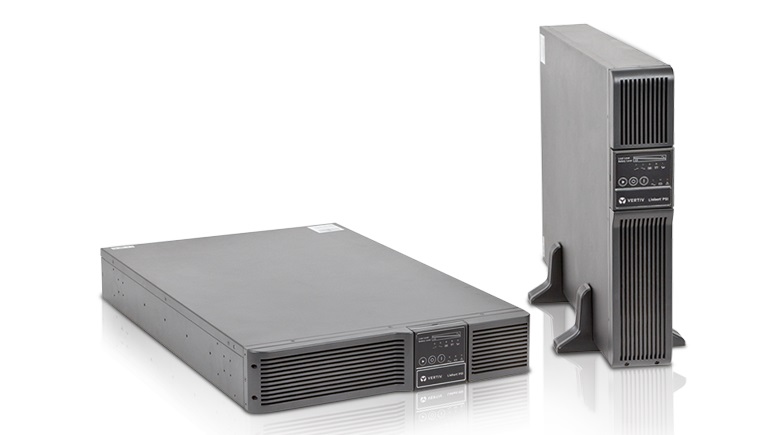
4. Vertiv Liebert PSI 1500VA
Specifications
Reasons to buy
Reasons to avoid
If you have a busy office with a number of essential devices that will need an uninterrupted power supply, then the Vertiv Liebert PSI 1500VA is definitely worth considering. Its three batteries will keep power-hungry devices running when the power goes down, and it can be installed into a server rack or set up as a self-standing tower.
It also has a rotatable LED screen that can be adjusted based on the kind of mounting you choose, making the placement quite convenient. It's designed for IT infrastructure, like small server farms and network storage rooms.
It comes in a number of configurations, so you can choose the one that best suits your needs, but if you are looking for a UPS for home use, then the APC BE600M1 Back-UPS 600VA above is a better choice.
Best UPS for home use
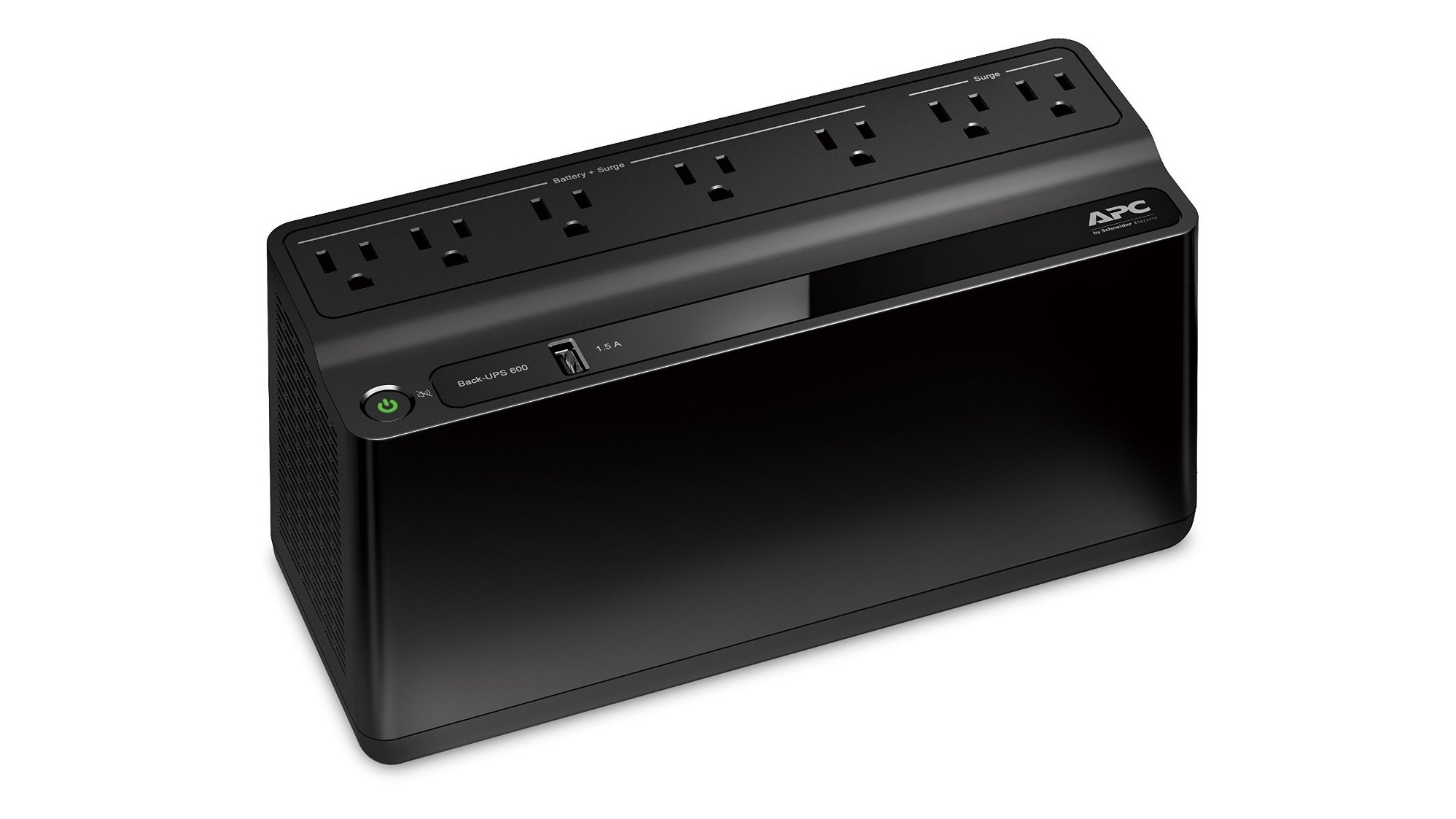
5. APC BE600M1 Back-UPS 600VA
Specifications
Reasons to buy
Reasons to avoid
This is another great UPS from APC, and with the BE600M1, the company has created a UPS device that is ideal for home use. That's thanks to its small and unobtrusive design, and it offers enough power for smaller devices, such as home NAS drives, routers, and gaming consoles.
Although it has only one USB port, it has plenty of sockets with sufficient spacing between them so that you won't have any difficulties connecting multiple wide plugs.
With careful management, you can keep the power flowing to a router or monitor for enough time to overcome most power cuts. For office use, with lots of power-sapping devices that need to be powered at once, then you'll want to look elsewhere on this best UPS list, but for home users on a budget, this is a great choice.
Check out our list of the best workstations.
Best UPS FAQs
What is a UPS?
UPS stands for uninterruptible power supply, it's a device that acts as a battery backup in case of an electrical power failure. Small UPS machines for homes and offices supply enough power for a few minutes, so there's time to turn off devices properly without losing any work. Larger UPS systems can even last a few hours, but you generally won't find these in homes or small offices.
How to choose the Best UPS for you?
When choosing a UPS for yourself, start with considering where you're going to use it — for your home or office? If it's a small home or office that you need to power, then a tiny UPS will work fine.
You'll want to evaluate the size and form of the UPS system. While some are compact and can be fit on desks, others are larger and either in the form of towers or rack-mounts. There are some UPS machines that can be used both as towers or rack-mounts.
Then, you'll want to assess how much power your devices require and how much time you need the electrical supply for once there's a power cut. If your device takes a few minutes to turn off, make sure to select a UPS system that can provide sufficient runtime for that.
How we tested the best UPS
We've tested these UPS machines across numerous points, starting with what environment they're best suited for — home, small office, or server farm?
We looked at how much power these devices supply, how much runtime they offer during power cuts, and their form factor (desk, tower, or rack-mount). We analyzed their specifications, like the input voltage, output capacity, battery runtime, and recharge time. We also considered the number of outlets they had and whether there was sufficient spacing between them for wide plugs.
Get in touch
- Want to find out about commercial or marketing opportunities? Click here
- Out of date info, errors, complaints or broken links? Give us a nudge
- Got a suggestion for a product or service provider? Message us directly
- You've reached the end of the page. Jump back up to the top ^
Are you a pro? Subscribe to our newsletter
Sign up to the TechRadar Pro newsletter to get all the top news, opinion, features and guidance your business needs to succeed!

Matt is TechRadar's Managing Editor for Core Tech, looking after computing and mobile technology. Having written for a number of publications such as PC Plus, PC Format, T3 and Linux Format, there's no aspect of technology that Matt isn't passionate about, especially computing and PC gaming. He’s personally reviewed and used most of the laptops in our best laptops guide - and since joining TechRadar in 2014, he's reviewed over 250 laptops and computing accessories personally.